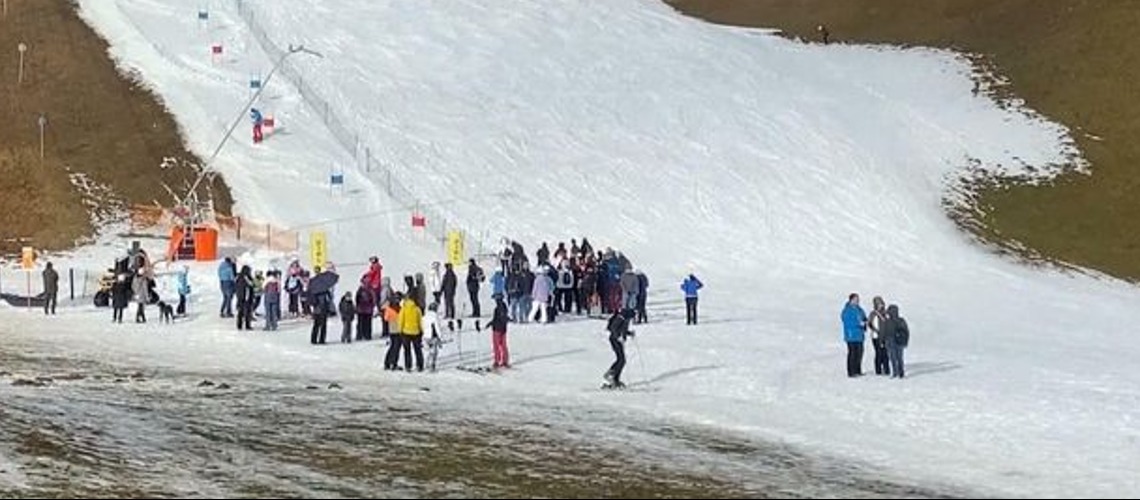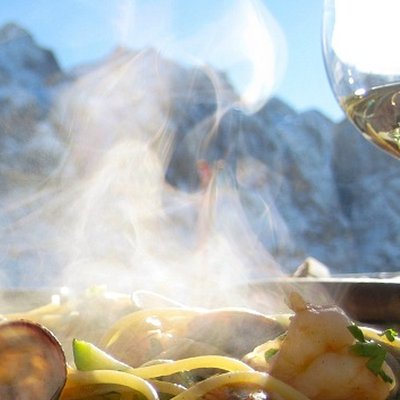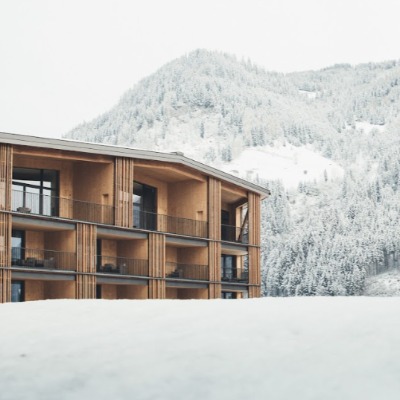Second Edition Of Alpine Climate Summit Concludes Successfully

The second edition of the Alpine Climate Summit, launched in 2024, recently concluded successfully. The summit also offered expert discussions, practical insights, and emotional appeals. In total, there were 13 discussions and presentations with around 42 experts. Around 150 experts and interested parties attended the Alpine Climate Summit. The next edition is already being planned for 2026.
About the Alpine Climate SummitThe Alpine Climate Summit is an interdisciplinary dialogue platform on climate change in the Alpine region. Its goal is to connect experts from science, business, health, sports, media, politics, and civil society, to make sound information accessible, and to discuss concrete solutions. A team of representatives from various disciplines was formed to coordinate the organization, ensuring a high-quality program. This team includes Dr. Andrea Fischer (researcher at the Institute for Interdisciplinary Mountain Research of the Austrian Academy of Sciences, glaciologist, and 2023 Scientist of the Year) and Prof. Dr. Ralf Roth (Head of the Institute for Outdoor Sports and Environmental Research at the German Sport University Cologne, initiator of the DA-CH network "Climate.Sport.Snow").
The Alpine Climate Summit is hosted by the Tyrolean Zugspitz Arena region and the Tyrolean Zugspitzbahn, supported by the Lebensraum Tirol Group and its subsidiaries Tirol Werbung, Standortagentur Tirol, and Agrarmarketing Tirol. The Alpine Climate Summit is supported by partners such as Elektrizitätswerke Reutte (EWR-Energie) and the Plansee Group.
Felix Windegger (social scientist at the Center for Advanced Studies of Eurac Research in Bolzano) opened the second day with the representative study "This is what South Tyrol thinks." The study, for which over 1,000 people were interviewed, focused on emotional reactions to the climate crisis. "In South Tyrol, concern about the climate crisis is very pronounced. The population is most afraid of drought, water shortages, heavy rainfall, and flooding, but also of glacier retreat," Windegger summarized.
How climate disinformation endangers our future
In the renowned STANDARD news podcast "Topic of the Day," Zsolt Wilhelm, together with Cathleen Berger of the Bertelsmann Foundation, explored the question "Is climate protection dead? Are climate deniers on the rise?" at an altitude of almost 3,000 meters. "Disinformation campaigns are usually only noticed once they have already spread widely – stopping them in advance is difficult because there are hardly any journalistic barriers on social media. The content is often highly emotional, manipulative, and based on selectively selected data," Berger explained.
Live experiments in the highest TV studio in the Alps
A humorous highlight of the second Alpine Climate Summit was the science talk on the streaming platform JOYN featuring SPIEGEL bestselling author Jan Hegenberg ("Climate Bullshit Bingo" and "Apocalypse Cancelled") and Konrad Stöckel. Moderated by Claudia von Brauchitsch (anchorwoman of Sat.1's Newstime), Stöckel demonstrated the phenomena of air flow up close in live experiments, prompting numerous laughs in the highest TV studio in the Alps.
What is the climate crisis doing to our health
Jens Ulrich Rüffer, 2nd Chairman of KlimaDocs, met on the Zugspitze to discuss health in the climate crisis: "I ask myself how climate change and heat waves, for example, affect pathogens. For example: Where will malaria areas emerge again? But it is also important to convey that no one is actually powerless. It is about showing where I, as an 'ordinary' person, can start to do something for myself and the climate. We must recognize our own empowerment." In a conversation with Tobias Hipp (German Alpine Association), Christine Busch (Managing Director of CIPRA Germany), and Johanna Schumann (Sustainability Manager SIS | DSV), Heinz Fuchsig (environmental physician and environmental officer of the Austrian Medical Association) also emphasized that, due to the increasing frequency of extreme weather situations, "mental preparedness" is important, i.e., training people and preparing them for extreme events. Schumann echoed the sentiment: "I believe that the psychological pressure on many people is noticeably increasing. Planning is declining, uncertainty is growing, and there's often a fear of change. This can be a real burden."
Tourism, agriculture and economy in climate focus
In addition to the Tyrolean Zugspitz Arena, the Lebensraum Tirol Group and its three subsidiaries – Agrarmarketing Tirol, Standortagentur Tirol, and Tirol Werbung – are also hosting the Alpine Climate Summit. In three expert panels, top-class experts from tourism, agriculture, and business discussed adaptation strategies and the resulting risks and opportunities:
As part of the tourism panel "Climate & (Tourism) Economy – How Alpine Tourism is Reinventing Itself," Reinhard Klier (Cable Car Spokesperson for Tyrol), Michaela Gasser-Mark (Consultant for Tourism Sustainability, Climate Change Adaptation, and Project Implementation), Martina Hollenstein Stadler (Managing Director and Partner at Mounteco GmbH), and Gerhard Eichhorn (Sustainability Coordinator at the St. Anton am Arlberg Tourist Board) discussed tourism and climate change. Klier explained: "We don't need a complete reinvention, but we do have to adapt to every change, including climate change. Of course, we still have room for improvement, but we're not starting from scratch. Ski bus use, for example, began long before 'sustainability awareness'. Furthermore, theoretically, 90% of guests could travel to Tyrol by train; there's still room for improvement here."
The panel "Drought, Frost & Heavy Rain: How Alpine Agriculture Remains Fit for the Future" focused on regional circular economy and future-proof alpine agriculture. Christian Partl (Tyrolean Gene Bank) and Till Rehm (Environmental Research Station Schneefernerhaus GmbH) discussed threatened harvests, water shortages, and concrete areas of action with vegetable farmer Romed Giner and Verena Radinger-Peer (BOKU Vienna). "A look at Merano shows which crops could also thrive here in the future. We've been growing zucchini in Tyrol for over ten years now – it's actually a Mediterranean fruit," Giner said.
The economic panel "Climate change as an economic boost: Is the green transition a guarantee for black figures?" brought together the German sustainability expert Christian Berg, Simon Meinschad (Managing Director of hollu Systemhygiene GmbH), Elsa Ventruba (University of Innsbruck and MountResilience project member) and, connected live, the renowned economist Claudia Kemfert.
Martin Reiter (Chairman of the management board of the Lebensraum Tirol Group), states: "Climate change is massively changing the framework conditions for business, tourism, and agriculture. Together with our subsidiaries Standortagentur Tirol, Agrarmarketing Tirol, and Tirol Werbung, it is therefore of great importance to us to discuss the issue broadly and to engage ourselves in climate change as best we can. The Alpine Climate Summit has set the course for this."
"The second Alpine Climate Summit once again brought together renowned scientists and climate experts and fostered lively exchange. We would like to continue this format next year in order to continue to offer a platform for climate dialogue," summarizes host and chairman of the Tyrolean Zugspitz Arena, Theo Zoller.
The Alpine Climate Summit will again be organized for 2026 according to the criteria of “Green Event Tirol basic”.
Some panel discussions are available here














